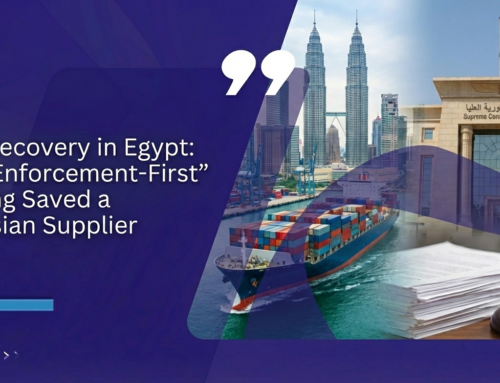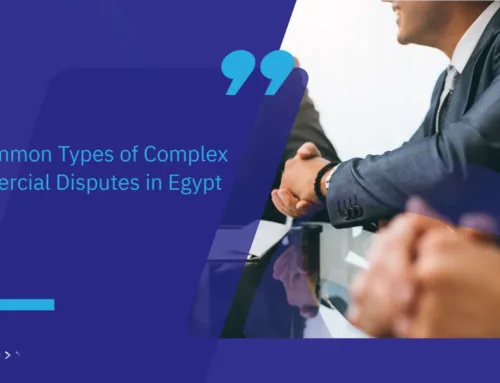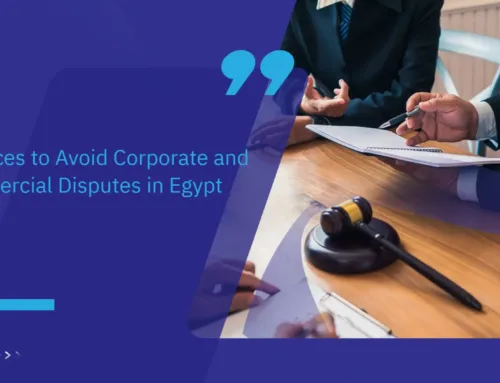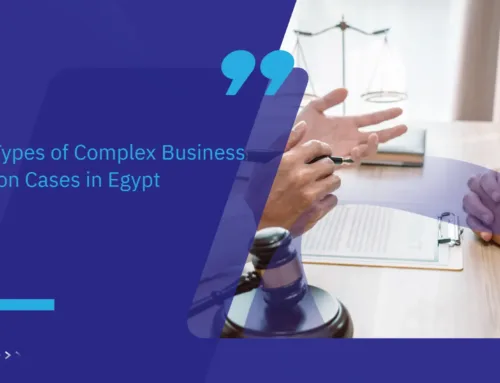In an era where international trade and cross-border deals are the cornerstone of modern business, legal disputes are inevitable, but they don’t have to derail your success. International Business Litigation in Egypt offers the solutions, expertise and strategic framework businesses need to protect their interests, minimize risks and maintain their competitive edge.
By understanding the complexities of international laws and leveraging the right legal expertise, businesses can turn potential roadblocks into opportunities for growth and innovation.
Understanding International Business Litigation
International business Litigation refers to legal disputes that arise in the course of conducting business across borders. These disputes can involve a variety of issues, such as contracts, intellectual property, trade laws and even disputes between different legal systems.
This field is particularly complex because it often requires an understanding of multiple jurisdictions, different legal frameworks and international treaties.
Egypt, with its rich history and growing influence in the international business arena, stands as a pivotal player in the realm of international business Litigation. As businesses expand across borders, they are bound to face legal challenges and Egypt’s legal infrastructure is designed to address these challenges head-on, providing a reliable framework for conflict resolution.
Common Causes of Disputes in International Business
Disputes in international business can arise from a variety of factors due to the complexity of cross-border transactions, different legal systems and cultural differences.
Here are some of the most common causes of disputes in international business:
-
Breach of Commercial Contracts
Disputes often arise when one party fails to meet agreed-upon terms, such as delivery times, product quality or payment schedules. Ambiguities in contract language or failure to address unforeseen circumstances like force majeure can further complicate matters.
-
Regulatory and Compliance Issues
Disputes can stem from changes in trade tariffs, import/export restrictions or failure to comply with local regulations on labor, taxes or environmental standards, especially in countries with complex or evolving legal frameworks.
-
Joint Venture or Partnership Disagreements
Conflicts emerge when partners in joint ventures or partnerships disagree on business direction, management control or profit sharing. Misaligned goals and poorly defined exit strategies can intensify these disputes.
-
Disputes Related to Mergers and Acquisitions (M&A)
Disagreements often emerge during mergers or acquisitions due to financial discrepancies, regulatory hurdles or failure to meet integration expectations, creating tension between parties over the value or handling of assets.
-
Fraud and Misrepresentation
Fraudulent misrepresentation, such as falsifying product quality or financial information, can lead to disputes when one party believes they were misled. Non-disclosure of key information or bribery and corruption can also trigger legal conflicts.
-
Disputes Over Investment and Financing
Investors and businesses may clash over returns on investments, mismanagement of funds or changes in the economic landscape that affect the viability of the business, especially in markets with high levels of risk or instability.
-
Breach of Confidentiality or Non-compete Agreements
Violations of confidentiality agreements or non-compete clauses, like unauthorized sharing of trade secrets or competing business activities, can lead to significant legal disputes between parties.
-
Political Risk and Government Interference
Expropriation, nationalization or sudden political changes in a foreign market can create disputes, as can sanctions or trade embargoes imposed by one country that affect the other party’s business operations.
Key Challenges in International Business Litigation
International business Litigation presents several unique challenges due to the complexities of operating across different legal, cultural and political systems.
Here are some of the key challenges businesses face in these disputes:
-
Cultural and Language Barriers
Differences in communication styles, language and business customs can lead to misunderstandings or complicate negotiations and legal procedures.
-
Legal and Regulatory Variations
Varying laws on taxes, labor, IP and more create confusion and potential non-compliance risks across different jurisdictions.
-
Political and Economic Instability
Sudden political changes, expropriation or economic crises can disrupt business operations and affect the ability to resolve disputes.
-
Multiple Legal Systems
Businesses often have to navigate multiple legal systems with conflicting rules and regulations, adding complexity to dispute resolution.
-
Enforcement of Judgments
Enforcing a foreign court decision or arbitration award can be challenging, especially in countries that don’t recognize or enforce foreign judgments.
International business Litigation is fraught with challenges. Thus, understanding and addressing these challenges proactively can save businesses significant time, money and reputation in the long run.
Hence, Companies need expert legal counsel with knowledge of multiple legal systems, cross-border disputes and strategies like arbitration and negotiation to effectively navigate these hurdles.
The Role of Expert Legal Counsel in Egypt
In international business Litigation in Egypt, legal counsel plays a crucial role in navigating the complexities of both Egyptian law and the intricacies of international business regulations, helping to protect their interests, manage risks and resolve conflicts efficiently.
Here’s how our expert legal counsel at “Consortio Law Firm” contributes to the process:
- Advising on Local Laws: Ensuring compliance with Egyptian laws, including contracts, IP and taxation.
- Contract Drafting: Creating clear contracts with dispute resolution clauses (e.g., arbitration).
- Dispute Strategy: Developing tailored approaches for negotiation, mediation, arbitration or Litigation.
- Court Representation: Representing clients in Egyptian courts when necessary.
- Regulatory Compliance: Ensuring businesses comply with local regulations to avoid disputes.
- Cross-Border Coordination: Managing international legal complexities and ensuring consistency.
- Risk Management: Identifying and mitigating potential legal risks before they escalate.
- Cultural Sensitivity: Advising on local business customs to avoid misunderstandings.
- Enforcing Foreign Awards: Helping enforce foreign arbitral awards under the New York Convention.
- Appeals: Assisting with appealing unfavorable decisions.
- Settlement Negotiation: Facilitating out-of-court settlements to preserve business relationships.
Expert legal counsel is critical for businesses seeking to thrive in the Egyptian vibrant economy, helping businesses navigate Egypt’s legal system, minimize risks and resolve disputes efficiently.
Hence, “Consortio Law Firm” is the best choice for international business Litigation in Egypt due to its deep expertise in both Egyptian and international law. The firm provides a comprehensive range of tailored legal services, ensuring that clients are fully supported at every stage of legal proceedings.
Don’t wait! Secure your business’s future today.
Join us to assist you with your international business Litigation and dispute resolution needs, helping you navigate the complexities of international disputes with confidence and precision.
For a consultation, please Contact us via:
Phone number: (002-01028806061).
Email: (Info@consortiolawfirm.com).
FAQ
-
Does Egypt recognize foreign court judgments?
Egypt generally recognizes foreign court judgments, but the recognition and enforcement of these judgments depend on the existence of bilateral treaties or reciprocity between Egypt and the other country.
-
Which courts handle international business disputes in Egypt?
International business disputes in Egypt are typically handled by the Commercial Court in Cairo. In some cases, specialized tribunals or the Cairo Regional Centre for International Commercial Arbitration (CRCICA) may be used.
-
What role does arbitration play in international business disputes?
Arbitration is a common alternative to court Litigation in international business disputes. It involves resolving conflicts outside of court through a neutral third party.
-
Can businesses in Egypt litigate in foreign courts?
Yes, businesses in Egypt can choose to litigate in foreign courts if the contract allows for it, or if the dispute is deemed more appropriate to be resolved abroad. However, enforcing a foreign judgment in Egypt can be difficult.
-
Are there any specific laws governing international business in Egypt?
Yes, Egypt has several laws and regulations that affect international business, including the Egyptian Commercial Code, Investment Law and Arbitration Law, which align with international standards in many areas.
-
Is Egypt part of any international treaties for dispute resolution?
Yes, Egypt is a signatory to several international treaties, including the New York Convention for the recognition and enforcement of foreign arbitral awards and the Convention on the Recognition and Enforcement of Foreign Judgments.
-
Can Egypt’s commercial courts impose sanctions on foreign companies?
Egyptian commercial courts have the authority to impose sanctions or penalties on foreign companies operating in Egypt if they violate local laws, such as trade regulations or tax laws.





